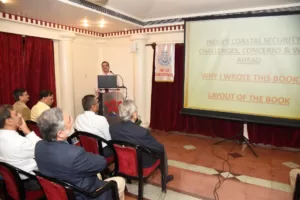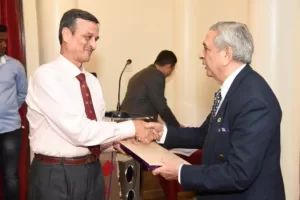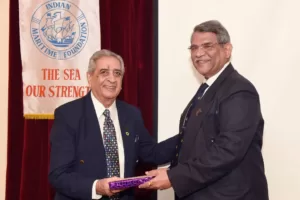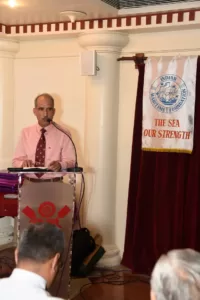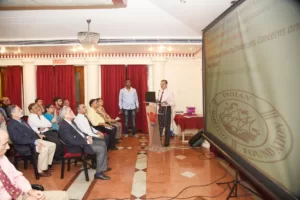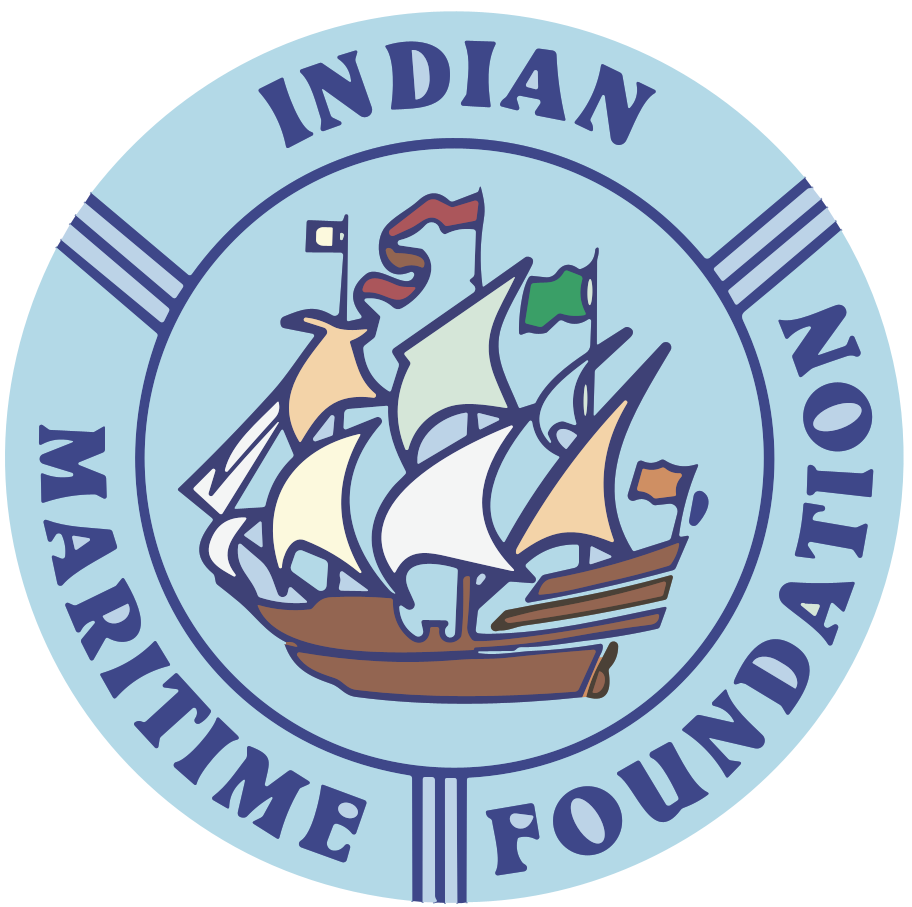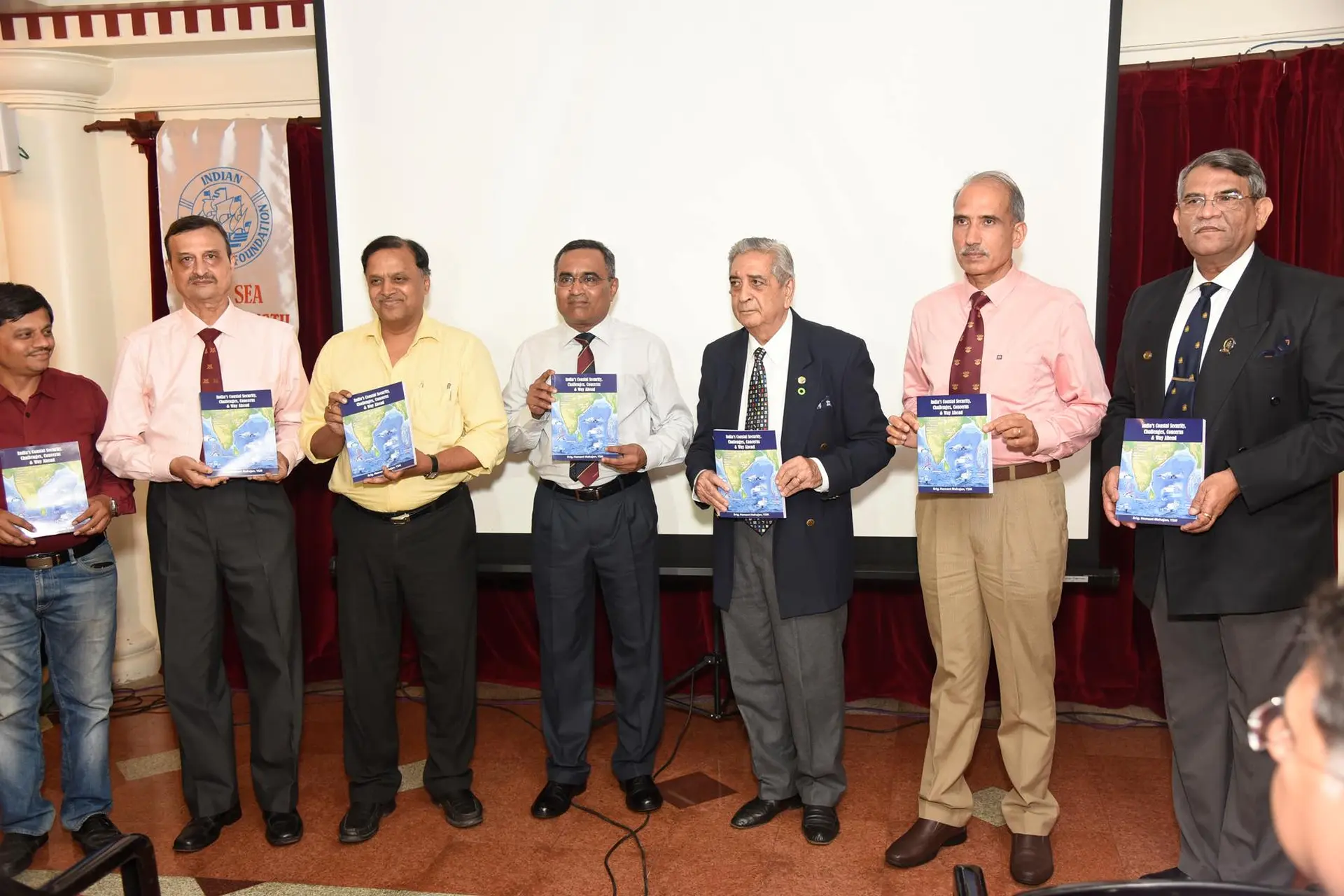
Release of Book
“India’s Maritime Security – Challenges, Concerns and the Way Ahead”
Introduction
A few years ago, the Indian Maritime Foundation established the Maritime Museum at the Archaeology Department of Deccan College Pune. Simultaneously, it was decided to form the Maritime Research Centre (MRC), to encourage research on affairs maritime. It was also decided to encourage research scholars to write books on maritime subjects in keeping with the IMF’s goal of spreading awareness about the oceans. The scholars would be provided financial assistance towards their research expenses. The first book was launched in February this year, authored by Cdr (Dr) Arnab Das.
The second scholar selected by IMF was Brig Hemant Mahajan YSM (Retd.), an Infantry Officer from the Maratha LI, and a prolific author. After a successful career in the Indian Army, during which he held many important Command and Staff appointments, including Command of his own Batallion – 7 Maratha LI, and a Brigade involved in Operation Rakshak, and Directing Staff at the Higher Command Wing of the Army War College, Brig Mahajan took to writing after retirement. He has published 7 books in Marathi and one in English on various aspects of India’s security, based on his service experience as well as an acute understanding of the international situation. He is a much sought-after TV personality and has appeared on English and Marathi Channels frequently. His current venture, to write about India’s Coastal Security was indeed a bold initiative, especially for an Infantry Officer.
Welcome Address by Cmde Rajan Vir (Retd), President IMF
The function to release this book was arranged at the Royal Connaught Boat Club on the 26th of September 2017. Lt Gen Manoj Pandey, Chief of Staff, Headquarters Southern Command kindly consented to be the Chief Guest and formally release the book. The event began with a welcome address by Cmde Rajan Vir, President IMF. While welcoming the Chief Guest and other dignitaries and all present, Cmde Vir spoke briefly about the IMF and its objectives. He also outlined the genesis of the Maritime Research Centre, and how it was decided to sponsor the books. He called the book by Brig Mahajan a ‘labour of love, since the author had travelled along both the coasts and the island territories over a period of 6 months and gained firsthand experience of the current status of Coastal Security.
Speech by Chief Guest, Lt Gen Manoj Pandey
Lt Gen Manoj Pandey then spoke about the book and was all praise for Brig Mahajan, especially the depth of research and the wide coverage of the subject. He also brought out that there were a large number of stakeholders in this and the need for cooperation and coordination was very high in the list of priorities. General Pandey also drew upon his own experiences in this regard and the role of the Army and the Southern Command in particular. He then ceremoniously released the book.
Speech by Author, Brig Hemant Mahajan (Retd)
Brigadier Hemant Mahajan, the Author was the next speaker and spoke about the book, his reasons for taking on the challenge, his visits to all the coastal states, interactions at all levels, from the highest to the working level on the ground, and other all information in the book was sourced from open domain and a comprehensive bibliography was included. He went on to explain the format of the book and how a chapter each had been dedicated to the major stakeholders, and the current situation analysed, concluding with recommendations for each agency. Brig Mahajan has clearly brought out the complexity of the task by stating that it is not only the length of the coast that needs to be taken into account but also the riverine coasts that extend well inshore also and provide easy landing spots. He illustrated this with examples of Maharashtra, where the coastline is just over 700 km, but the riverine areas are over 100 km long, and these are not adequately patrolled. Similarly, he highlighted the great challenges faced in the Sunderbans Delta. The book has divided the entire Coastal Security paradigm into time frames, beginning from Independence, to the present phase, which is post 26/11. He explained that though there were some facts brought out that may not be palatable to all, there was a definite need to include them to bring out the lacunae that exist. The final chapter of the book is a summary of the major recommendations made. He hoped that the book would be useful and read by all stakeholders, young officers and strategists involved in the planning and execution of Coastal security.
Speech by Cmde Ajay Chitnis (Retd)
Next to the podium was yours truly, Cmde Ajay Chitnis, to provide a naval perspective on the book. With as many as 17 government agencies across six ministries directly involved in Coastal Security, it is bound to be a herculean task and requires very close coordination at all levels for any degree of success. Having had firsthand experience of Operations Tasha and Swan, one was in a position to illustrate the practical challenges at the ground level, especially since no agency wanted to accept the supremacy of the others. This aspect has been strongly brought out in the book, wherein Brig Mahajan has firmly stated that there should be a ‘Controlling’ agency rather than a Coordinating one, and thus the need for a National Maritime Security Advisor. I concluded by saying that because the book has been written by an Army Officer, it provides an unbiased view, since Naval Officers or Coast Guard Officers may have had to contend with preconceived ideas based on their experience. This book was a compendium of factors impinging upon Coastal Security, and a very useful Book of Reference for all personnel concerned with Coastal security.
Speech by Mr Avinash Dharmadhikari, IAS (Retd)
Mr Avinash Dharmadhikari, a retired IAS officer was the next speaker and began with an astute observation about the inaccuracy in one of the maps displayed by the Author. He felt that even at the expense of sounding ungrateful, he needed to set the record straight. He then went on to compliment Brig Mahajan in the highest terms, stating that this was the first comprehensive treatise he had read on the subject and that it was a must-read for all officials posted in the Coastal States and Union Territories. He felt that strong coastal defence was the need of the hour and that it was this aspect alone that would be the deciding factor in preventing repeats of the 26/11 attacks. He wished the author a lot of success with the book and in his future endeavours.
Speech by RAdm SK Grewal, Dy Comdt NDA
Rear Admiral SK Grewal, Deputy Commandant NDA was the last speaker of the day, and he delved upon his controlling experience as the Chief Staff Officer Operations of the Eastern Naval Command, on Coastal Security. He brought out that very few people realized that the total distance from Bangladesh to the Orrisa Coast by sea was less than 40 km, and this was only covered by one coastal defence station of the BSF, whereas, the strength of the BSF guarding the land border between the two counties was close to 200000 personnel. The stark difference was enough to put into perspective the importance accorded to coastal security. He explained that even though there had been setbacks, the patrolling operations were continuing relentlessly. He too complimented the author on bringing out the nuances clearly, and the need to establish a strong command and control organization dedicated to coastal security.
The compere for the evening, Maj Gen Shirish Mahajan, did a great job and conducted the program with clockwork precision. He was given fitting applause by the audience when he received his memento from the President of IMF. Cdr (Dr) Arnab Das proposed the vote of thanks, and mementoes were presented to all the speakers and the publisher. This brought to an end another successful IMF function, which had a great audience.
India’s Coastal Security, Challenges, Concerns & Way Ahead” by Brig Hemant Mahajan, YSM, Pages-336. Available on Book Ganga (http://www.bookganga.com/…/Details/5688672128450325048)



